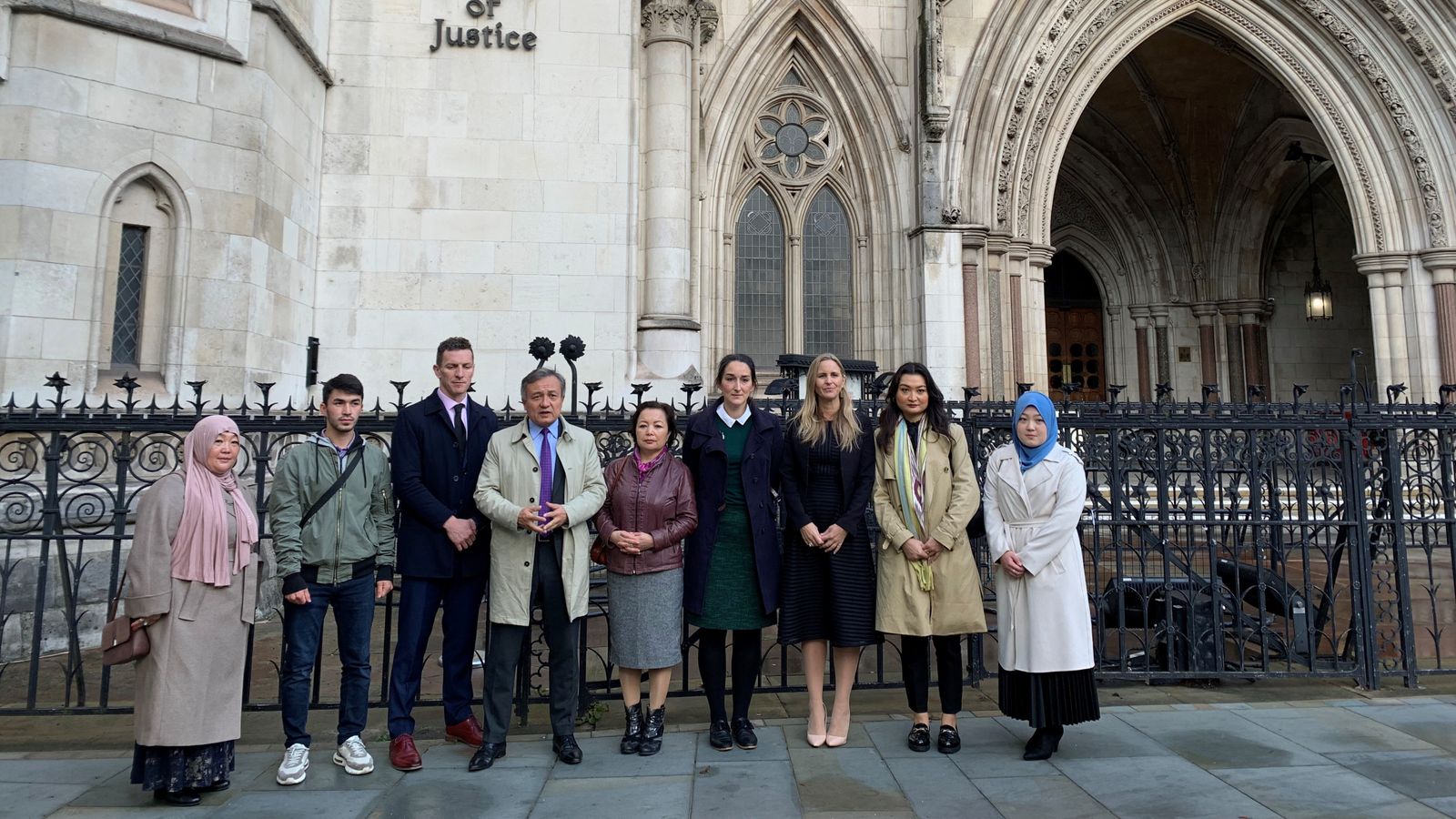The government has been taken to court over cotton picked by Uyghur people in Chinese forced labour camps being imported into the UK.
A Uyghur human rights organisation, the World Uyghur Congress (WUC), told the High Court on Tuesday that failing to launch a criminal investigation into the import of cotton allegedly picked by Uyghurs subject to forced labour within northwestern China was “unlawful”.
Uyghur factory workers in Xinjiang face “detention and coercion” and the UK is thus potentially complicit in human rights violations, the WUC said.
China denies all claims of human rights abuses against Uyghur Muslims, despite allegations that over a million people have been subjected to ill treatment including detention, torture and forced sterilisation.
Munich-based WUC appeared before the High Court on Tuesday where it claimed there was a “high risk” cotton products imported into the UK by some Chinese businesses are likely to be produced at the expense of Uyghurs Muslims through “prison or forced labour”.
The UK government concedes that China’s attempts to “silence and repress” Uyghurs and minorities in Xinjiang are “appalling” and what has emerged from the region is “harrowing”.
However, the government’s lawyers claimed in court the WUC merely provided “generalised” evidence on a “hypothetical” case.
UK ‘dragging its heels’ over trade links to forced labour in China – as one survivor prepares to sue trade secretary
China’s treatment of Uyghur community ‘may constitute crimes against humanity’, UN says
‘Questions and concerns’ raised with China over treatment of Uyghur people
The National Crime Agency (NCA) decided there was “insufficient material from which to develop any line of inquiry or criminal investigation”, they added.
Jenni Richards KC, speaking on behalf of the WUC, told the court the government had made a legal “misunderstanding or misdirection”, and had “resolutely declined to engage” over evidence collated since 2020 of the “horrors” allegedly committed against Uyghur people.
Ms Richards stated, through written submission, that there had been a failure to look into possible violations of the Foreign Prison-made Goods Act as well as launch a money laundering probe or start civil confiscation processes under the Proceeds of Crime Act (POCA).
“Any property that represents a benefit from forced labour in XUAR, in whole or in part, is criminal property,” Ms Richards said.
She added that “any cotton products in the UK generated by forced labour and funds flowing from their sale are recoverable”, and these imports are obtained through “gross human rights abuse” or “money laundering”.
The WUC said it had found four “implicated Chinese companies” involved in the large-scale growing of cotton and manufacture of products in XUAR.
According to publicly available information, companies trading in the UK source from three of those, the WUC added.
Meanwhile, shipping data also indicated 489 UK-bound shipments from the fourth, the group claimed.
About 85% of cotton grown in China is sourced from XUAR, with production having “boomed” since the introduction of the Chinese government’s “minority control measures” in 2014, Ms Richards said.
The WUC’s KC said at least 380 labour camps have been set up in the Xinjiang area with the aim of gaining “effective social control” over Uyghur and other Turkic people.
Ms Richards told the court there was “overwhelming” evidence of “coercive criminal acts”, that Chinese companies were closely involved with Beijing policies “designed to be forced labour and detention programmes”, and that it was “inevitable” that UK companies were procuring cotton from workers in exploitative conditions.
Sir James Eadie KC, representing the government through written submissions, said the UK was “seriously concerned” about China’s alleged “human rights violations” and was determined to work internationally to put an end to it.
But he told the court that British authorities were “not and have never been condoning or perpetuating” abuses of the Uyghur people by not taking action and that there had been “no error of law” in not launching a criminal investigation.
He said the law required specific property to be identified in connection with a “concrete occurrence of criminal conduct” and said the WUC’s case relied on “speculation and assumption, derived from a generalised evidential picture”.
He argued it would be wrong for British authorities to “engage in wholesale seizures or embark on investigations which are incapable of effective resolution and which risk exposing (them) to claims of high-handed conduct and abuse of power”.
The NCA continues to assess intelligence over the XUAR cotton industry and may conduct an investigation if more evidence is made available in the future, he added.
The hearing before Mr Justice Dove concluded on Wednesday, and a ruling is expected at a date in the future, which is still to be set.








